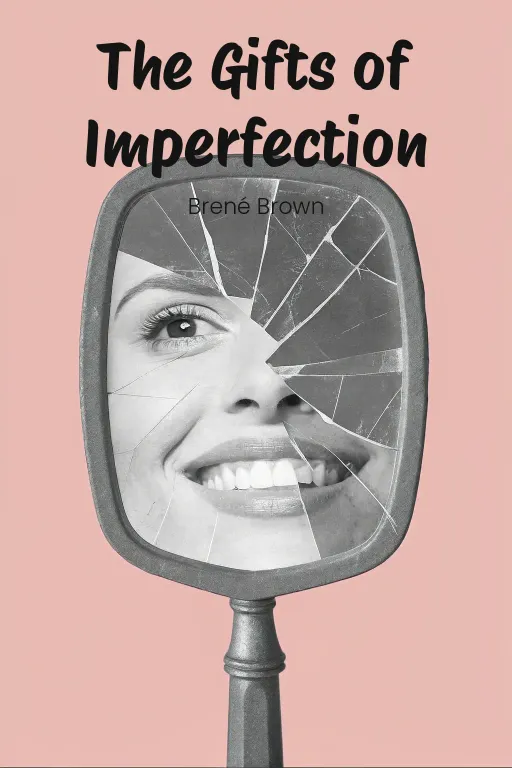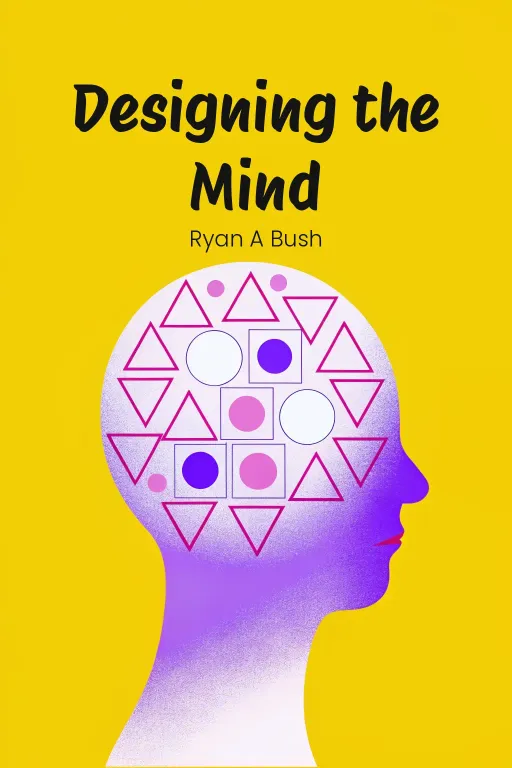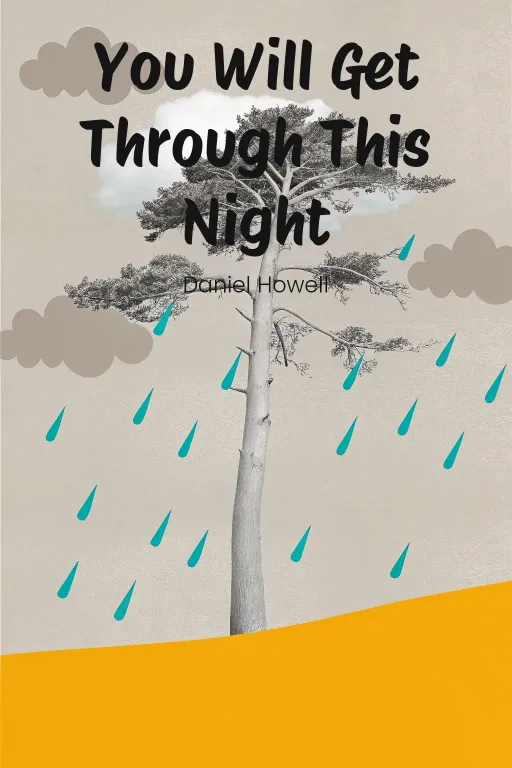
Dare to Connect: Find Courage Now
Podcast by Beta You with Alex and Michelle
Introduction
Part 1
Alex: So Michelle, let's kick things off with a question for you. When was the last time you felt genuinely vulnerable? Maybe owning up to a mistake at work, asking for a favor, or, you know, being the first to say "I love you"? It’s a bit of a cringe, even thinking about it, isn't it? Michelle: Absolutely, and that discomfort is exactly what we're unpacking today. We're diving into Brené Brown’s Daring Greatly, a book that “really” flips the script on how we see vulnerability. Instead of viewing it as a liability, Brown argues that vulnerability is actually the bedrock of courage, genuine connection, and innovation. Alex: Right, and let's be honest, most of us are masters at dodging vulnerability, aren’t we? Whether it's through striving for perfection, using sarcasm as a shield, or just drowning ourselves in being busy, we build these walls to keep vulnerability at bay. But Brown suggests that these defenses, what she terms "armor," might not be as helpful as we believe. Michelle: Exactly. Brown gets into these “really” powerful ideas, like how that persistent feeling of "not being enough" stems from a scarcity mindset that's kind of baked into our culture, and how shame, that painfully deep sense of unworthiness, “really” drives this cycle of disconnection. But she doesn't just point out the problem – she offers practical ways to break free from shame and build what she calls shame resilience. Alex: And we’re going to dig into those tools today. We’ll start by tackling the big misconception: vulnerability equals weakness. Spoiler alert, it's so not true. Then, we’ll explore how shame operates, kind of like a shadow in our lives, often hidden but always there. And finally, we'll look at real-world examples—how embracing vulnerability can change you as a leader, a parent, or just someone trying to navigate the ups and downs of relationships. Michelle: Think of it as a blueprint for swapping self-doubt with self-compassion, and isolation with real, meaningful relationships. Brown calls this living wholeheartedly, and, well, we’re going to break down what that actually means in practice. Alex: It's about trading self-doubt for self-compassion, and disconnection for real, meaningful relationships. Brown calls this living wholeheartedly, and we'll unpack what that actually looks like. Michelle: Sounds pretty idealistic, right? But if vulnerability is supposed to be this amazing strength, I’m definitely curious to see how that translates to the real world - you know, a demanding boardroom or a full-blown toddler tantrum. Alex: Don't worry, we'll absolutely get there. Let's start by “really” defining vulnerability and understanding why it's so crucial for daring greatly.
The Power of Vulnerability
Part 2
Alex: So, let's really dive into vulnerability, because Brené Brown totally flips the script on what we typically think. Traditionally, society sees vulnerability as weakness, right? Like, being emotional or uncertain is something to avoid. But Brown says it's not a weakness—it’s actually a strength. It’s where courage and connection come from. Michelle: Okay, but hold on. Someone’s probably thinking, "How is putting everything out there a good thing? Isn’t that just asking for trouble?" We’re always told to be tough, not let people see us sweat. That's the opposite of being emotionally exposed. Alex: Exactly, and that’s what Brown challenges. She says you can't have courage without vulnerability. Think about it: whether it’s telling someone you like them, pitching a risky idea, or standing up for what you believe in, those things involve risk. And risk means opening yourself up to potential rejection. Without vulnerability, you can't really grow or connect. Michelle: Okay, vulnerability equals risk. But what about the reward? Let’s talk more about that boss who bared his soul to his team. Why was that so important? Because I can see that going wrong—silence, or worse, the team losing faith in him. Alex: Good point. The key was that his vulnerability created a ripple effect. Before, he pretended to be perfect, no flaws. By admitting he struggled with pressure, he gave his team permission to do the same. It wasn't just about him; it changed the whole team. They found trust and a common ground. Michelle: So, being honest didn't hurt his leadership—it actually helped it? Alex: Precisely. People trust leaders who are real, who show they’re human. That doesn’t mean telling everyone your deepest secrets—it’s about intentionally being vulnerable to foster connection. He showed he didn’t need to be perfect to be a good leader. Vulnerability strengthens relationships because it invites authenticity. Michelle: Okay, so vulnerability in the workplace makes sense. But let’s broaden this. Brown thinks vulnerability is essential for all human experiences—love, joy, creativity. Why is that important? Alex: Because emotional exposure is necessary for connection. Think about love—how can you truly love without risking getting hurt? Or joy—you can't fully enjoy it if you’re worried about when it will end. Brown talks about "foreboding joy," where people worry so much about when the happiness will disappear that they miss out on enjoying it. Michelle: Foreboding joy. That’s the “this is too good to be true” feeling, right? Like, you’re holding your baby or getting a promotion, and instead of enjoying it, you’re waiting for something to go wrong. Alex: Exactly. That’s a scarcity mindset—thinking good things are limited. Vulnerability means embracing those moments despite the risk. It’s enjoying joy even if it feels fleeting, because that’s where true connection happens. Michelle: Right. And the same goes for creativity, doesn’t it? You need to put yourself out there—your ideas—where people can judge you. Vulnerability is part of the process. Alex: Absolutely. Brené Brown says creativity thrives on vulnerability. If you’re afraid of failing, you won't take risks, which is where new ideas come from. She talks about "staying in the arena"—facing discomfort instead of avoiding it. A lot of people block their creative potential because of perfectionism, but vulnerability says, "Done is better than perfect." Michelle: Staying in the arena isn’t easy. No one wants to fail. How does Brown suggest we embrace vulnerability when it feels so unnatural? Alex: It begins with viewing vulnerability as courage. Brown advises seeing uncomfortable moments as opportunities to grow. She also stresses emotional literacy—being able to identify your emotions. Saying, “I feel scared” lessens the power of those feelings. Michelle: Naming emotions—like giving your internal chaos a weather report. Alex: Exactly. It helps you understand your needs and communicate better. And then there’s the need for safe spaces. Vulnerability is contagious, but it needs the right environment—a trusted friend, partner, or team. Start small, share something meaningful, and see how the other person responds. Michelle: What if they dismiss you? Alex: Then you know who not to share with. That’s part of vulnerability—taking risks, but also setting boundaries and protecting yourself. Brown is clear: vulnerability isn’t about sharing everything with everyone. It’s about knowing when, where, and with whom to share. Michelle: Got it—so it’s not “vulnerable equals oversharing.” It’s vulnerability as calculated courage. That makes sense. And that ripple effect—where one brave act inspires others. Like the teacher who shared her challenges with her students, that helped everyone, and changed the classroom dynamic. Alex: Exactly. It showed resilience and reframed mistakes as part of growth. Vulnerability is like a domino—it creates safety for others to follow. So a single act can ripple outward, fostering connection and empathy in every direction. Michelle: Okay, I see how this all connects. Vulnerability isn’t about exposing your weaknesses randomly—it’s about building stronger connections, embracing uncertainties, and being brave enough to participate. Still risky, but the benefits are clear.
Understanding and Combating Shame
Part 3
Alex: Okay, that’s a great segue into the next piece—understanding shame, which is “really” the silent killer of vulnerability. If vulnerability lets us connect authentically and be brave, shame is that insidious voice telling us we're just not worthy of those things. Michelle: Shame is so slippery, isn't it? Unlike something obvious like anger or fear, it kind of operates in the shadows, slowly chipping away at your self-confidence. So, where does this whole shame thing even come from in the first place? Alex: Well, Brené Brown defines shame as that really painful sense of feeling fundamentally flawed, as if we don't deserve love or belonging. It's like that nagging voice whispering, "You're not good enough," "You're unlovable," or "You're a complete failure." And the key difference between shame and guilt is that guilt focuses on our actions, while shame goes straight for our identity. Guilt says, "I did something bad," but shame twists it into, "I am bad." Michelle: Hold on a sec. That difference between guilt and shame is so important. So, guilt can actually motivate you to take action—to apologize, make amends, whatever—but shame just pulls you further down into a negative spiral, right? Alex: Exactly. Shame gets you stuck in isolation and self-doubt. It basically cuts off any chance for fixing things or growing. For example, imagine you miss a really important deadline at work. Guilt might push you to say, "Okay, I messed up; I'm going to own it and figure out how to do better next time." But shame turns that into, "I'm completely useless; I don't even deserve this job." And that shift in perspective makes it so much harder to deal with the situation or get back on your feet. Michelle: Which probably explains why shame can “really” affect you physically too. Brené mentions that our brains process the emotional pain of shame in the same areas as physical pain. It's not just some abstract feeling—it hits you on a very real, physical level. Alex: Absolutely. And she talks a lot about how society makes it worse by creating shame triggers around things like body image, career success, or even parenting. So, if someone gets criticized in a meeting, it's not just about the specific criticism itself; they might internalize it as proof that they're inadequate. The fear of being judged by others just makes it even more intense. Michelle: So, shame thrives on secrecy and judgment, but how exactly does that play out in people's behavior? You see people respond to shame in all sorts of ways—some get defensive, some withdraw, some try to overcompensate. What's the deal with that? Alex: That's a really insightful question. Shame often leads to unhealthy coping mechanisms, like disengaging, striving for impossible levels of perfection, or even acting aggressively. Take perfectionism, for instance. It's often rooted in the idea that if you seem flawless, you can protect yourself from judgment—and therefore from shame. But the thing is, perfection is impossible, so you get stuck in this cycle of constantly falling short of unrealistic standards. Michelle: That makes me think of Brené's story about the woman struggling with infertility. She felt like she was failing as a woman, which made her pull away from the people she needed most. So what was the turning point for her? Alex: The turning point was when she allowed herself to be vulnerable. She shared what she was going through with a close friend, and instead of judging her, the friend showed her empathy. That's really one of Brené's core messages—shame loses its power when it's met with empathy. By sharing her story with someone who truly listened and understood, the woman not only weakened the hold of shame but also strengthened her connection with her friend. Michelle: So, instead of battling shame alone in silence, we need to bring trustworthy people into the conversation to break that isolation. Alex: Exactly. Which brings us to Brown's framework for building shame resilience. She outlines four main strategies, and it starts with “recognizing and naming shame triggers.” So, the first step is really just building self-awareness: what kinds of situations tend to trigger shame for you? Is it failing at work, getting criticized as a parent, or comparing yourself to unrealistic images online? Michelle: You said "naming" the triggers, and I like that. It's like, "Hi, I'm Michelle, and one of my shame triggers is looking at LinkedIn posts about tech billionaires." Alex: <Laughs> It's funny, but it's also true, right? Social media is a huge trigger for so many people. Brown suggests that once you identify those triggers—like endlessly scrolling through perfectly curated feeds—you can start to question the validity of those comparisons. You might take a step back and say, "This isn't a reflection of my own worth; it's just a snapshot of someone else's life." Michelle: Alright, so naming triggers helps us see things more clearly. What's next? Alex: The second strategy is “cultivating critical awareness.” And that means examining the messages our society sends about what makes us worthy, and then consciously rejecting the ones that are unrealistic or harmful. For example, Brené talks about a mom who felt ashamed because she couldn't make it to all the school events due to her job. Once she questioned this idea of the "perfect parent," she realized that her value wasn't about selling cookies at every bake sale, but about the quality of her connection with her kids. Michelle: So, basically, we're talking about rewriting the scripts we've been given. It's saying, "No, I don't have to volunteer for every single school event to be a good parent," or "My worth isn't tied to how quickly I climb the corporate ladder." Alex: That's it exactly! It's about separating your inherent worth from external measures of success. And that leads directly into the third strategy: “sharing personal stories.” Shame hates being out in the open, but when you give it a voice and share it in a safe, empathetic space, it begins to lose its power. Like that example of team members opening up about their failures and finding support instead of judgment. Michelle: That example is so powerful. It “really” turns humiliation into connection. But how do you know who you can trust with these vulnerable stories? Alex: That's the key nuance that Brown emphasizes. Vulnerability doesn't mean just blurting out your deepest secrets to anyone. It's about finding people who have earned the right to hear your story—trusted friends, partners, mentors, or therapists who will respond with empathy and understanding, rather than criticism or dismissal. Michelle: Okay, that makes sense. And that brings us to the fourth and final strategy: “practicing self-compassion.” This one might be the toughest for a lot of people. Shame is so good at convincing us that we're unworthy—how do we even begin to fight against that? Alex: Well, self-compassion is about treating yourself with the same kindness and understanding you'd offer to someone you care about deeply. Drawing from the work of Dr. Kristin Neff, Brené talks about three main components: self-kindness, common humanity, and mindfulness. Self-kindness means being gentle with yourself when you mess up. Common humanity is remembering that you're not alone—everyone makes mistakes. And mindfulness is about being present with your emotions without exaggerating them or trying to suppress them. Michelle: Okay, let's say I just lost my job, and shame is having a field day, telling me I'm a complete failure. How would self-compassion work in that situation? Alex: Instead of letting shame take over, you'd pause and say to yourself, "This is “really” hard, but struggling doesn't make me a bad person." You'd acknowledge your feelings, remind yourself that job loss is a common experience, and focus on what you can learn from this and how you can move forward. Self-compassion helps you shift from internal criticism to resilience and hope. Michelle: And that seems to be the core of Brown's work—it's not about getting rid of shame altogether but about learning how to navigate it. Right?
Practical Applications: Leadership and Parenting
Part 4
Alex: Okay, so once we’ve started to understand and deal with shame, we can start thinking about how to use these ideas in real life, right? Like, in leadership or parenting. This is where vulnerability goes from being just a concept to something that can “really” change things. Brené Brown talks about leadership and parenting as really important places to practice being vulnerable and building resilience to shame. Michelle: Exactly, Alex, and it's not about being all soft and mushy. Leading a team or raising a kid, those are high-stakes gigs. Leaders need to guide companies while still being in charge, and parents are basically building the next generation – talk about pressure, huh? So, how does being vulnerable even fit in without messing up those responsibilities? Alex: That’s the million-dollar question. Actually, Brown argues that embracing vulnerability can make you better in those roles. In leadership, if you’re open, it builds trust and encourages new ideas. And as a parent, you're giving your kids the tools to handle their feelings and feel good about themselves. Let's dig into leadership first. Michelle: Alright, so leadership and vulnerability might seem like an odd mix. We usually think leaders need to have all the answers, right? That they're supposed to be super confident and in control. So, how can they be vulnerable without looking like they don't know what they're doing? Alex: It’s all about how you show it. Leadership isn’t about spilling all your secrets. It’s about being open in a way that makes sense. Brown says that when leaders admit they don’t know everything, it makes people feel safer to step up, share ideas, and talk about their own worries without being judged. That's how vulnerability builds trust. Michelle: Ah, so you’re saying it's not a weakness, but a way to make the team stronger. But let’s get practical. What about that story in the book about the manager who said he didn't do a great job supporting his team through a project? That sounds pretty risky. What kept it from completely backfiring? Alex: Well, he didn't just whine about it or make excuses. He took responsibility for what happened and asked his team for their thoughts. It wasn’t about him looking bad; it was about creating a conversation where everyone could learn and grow. His vulnerability showed his team that he saw them, heard them, and wanted them to succeed. Michelle: Okay, I get how that could work in a perfect world. But what if the company culture isn't so open? What if people think vulnerability is just being weak or not good at your job? Is it still possible? Alex: Brown knows that's a challenge. She says building a culture of vulnerability has to start at the top. Leaders need to create what's called "psychological safety." That means making sure people feel like they can share ideas, admit mistakes, or challenge things without getting punished. One way to do that is by showing those behaviors yourself, like being open to feedback or talking about failures as learning experiences. That sends the message that vulnerability is part of getting better, not a sign of weakness. Michelle: Right, so it’s not just about one person being vulnerable. It’s about creating a culture where everyone feels safe to be themselves, and that can change the whole company. Now, how does this translate to something as personal as parenting? Alex: Well, in many ways, being vulnerable is just as important as a parent as it is as a leader. Brown thinks parenting is about showing your kids the things you want them to learn. When parents are okay with not being perfect and show that it's okay to be scared or make mistakes, they help their kids become more resilient and accept themselves. Michelle: That's an interesting point. So instead of the leader saying, "I don't have all the answers," the parent is saying, "I don't always get it right, and here’s how I deal with it." But is there a risk of showing too much vulnerability and making your kids feel insecure? Alex: Absolutely, and Brown talks about finding the right balance. Being vulnerable as a parent doesn’t mean dumping all your adult problems on your kids. It means being honest about your emotions in a way that’s appropriate for their age. For instance, instead of hiding that you’re frustrated after a bad day, you might say, "I was feeling upset earlier, but I took some time to calm down, and I feel better now." That teaches them how to manage their own emotions and shows them that it’s okay to have tough feelings. Michelle: Right, so the parent shows that emotions are normal, but you can deal with them. That takes away some of the fear and shame around emotions. I remember that story in the book about the mom who talked about her rough day. What I thought was amazing was how her honesty actually brought her and her child closer instead of stressing them out. Alex: Exactly. By sharing her feelings in a grounded way, she made it easier for her child to share their feelings as well. That’s the magic of vulnerability – it creates a space for connection and empathy. And it's not just about one-time moments. It's about creating an atmosphere in the family where feelings are accepted, and mistakes are looked at as opportunities to grow, not signs of failure. Michelle: Alright, but let’s talk about perfectionism. Just like leaders might think they need to look like they know everything, parents often feel like they need to be super strong and always in control. What does Brown say about letting go of that "perfect parent" idea? Alex: She really gets into that. Brown argues that trying to be a perfect parent puts too much pressure on parents and also sends the wrong message to kids – that they need to be perfect to be worthy. Instead, she tells parents to show themselves compassion and be vulnerable. For example, a parent can share things they’ve learned from their own mistakes, showing their child that setbacks are a normal part of life. Michelle: So instead of a parent saying, "I have to do everything right," they’re saying, "I mess up too, but I’ll keep trying, and you can too." That sounds freeing, but also tough to do when the world is constantly showing us these perfect parent ideals. Alex: It is tough, which is why Brown talks about being aware of what’s going on around you. Parents need to question those unrealistic standards – whether they’re coming from social media, friends, or society – and focus on what’s truly important: building trust, helping their kids become emotionally resilient, and making them feel like they belong in the family. Michelle: Speaking of belonging, I noticed she talks about it not just as an idea but as a culture you create within a family. So how does vulnerability help create that culture? Alex: Vulnerability is the foundation, because it makes it safe to share emotions and experiences without being judged. When family members feel safe to express themselves, they develop a sense of unconditional acceptance. It can be as simple as telling a child, "It’s okay that you feel angry or sad; I’m here for you." That reassurance builds trust and reinforces that their worth isn’t tied to their behavior or performance. Michelle: I like that. Vulnerability builds connections, but it also builds resilience. Kids learn that it’s safe to express tough emotions and that those emotions don’t have to define them. Alex: Exactly. And that’s vulnerability’s greatest strength. Whether it’s in leadership or parenting, it reminds us that we’re all human. Leaders don’t need to have all the answers, and parents don’t need to be perfect. What matters is showing up as your true self, facing challenges with courage, and creating environments where others feel safe to do the same.
Conclusion
Part 5
Alex: Okay, so to sum things up, today we really dove into Brené Brown’s idea of vulnerability, right? How she reframes it as a strength, not a weakness. It's like, vulnerability isn't this thing to avoid, but actually where courage, connection, and creativity are born. And embracing it? Absolutely key for growing, both personally and in our careers. Michelle: And we also talked about shame, that sneaky enemy of vulnerability. The way it can hold us back, you know? But understanding the difference between shame and guilt, that’s a game-changer. It helps us break free from those negative patterns. And those strategies of Brené’s—naming our shame triggers, being more aware, sharing our stories, and practicing self-compassion—that’s a practical roadmap for building resilience. Alex: Exactly! And it’s not just about us as individuals, either. Leaders who are willing to be vulnerable? They build trust and foster innovation. And parents who show self-acceptance and emotional honesty? They raise kids who are resilient and connected. It’s pretty powerful stuff. Michelle: Right, so vulnerability... it's not about just airing all your dirty laundry, or throwing caution to the wind, right? It’s more like… strategic courage. It’s taking calculated risks to grow, be authentic, and connect with people in a real way. It sounds like living consciously. A kind of risk-management that favors connection with others. Alex: Totally! So, here’s a little challenge for our listeners: this week, just take one small step towards being more vulnerable. Maybe it's sharing a fear with someone you trust, admitting a mistake at work, or even just allowing yourself to feel joy without, you know, waiting for the other shoe to drop. Just dare to take that small risk. Michelle: Yeah, give it a shot. And remember what Brené Brown says, so beautifully “Daring greatly is about showing up and letting ourselves be seen.” I mean, that’s a lesson worth living, isn’t it? Right? Alex: Definitely. Well, thanks for joining us as we explored Brené Brown’s “Daring Greatly”. Until next time, stay curious and keep daring greatly! Michelle: Catch you next time. And remember folks, vulnerability might be scary, but that’s where all the good stuff starts.









